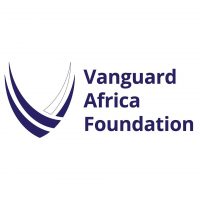 Being An Opposition Leader Isn’t A Crime
Being An Opposition Leader Isn’t A Crime
This article was originally published in Vanguard Africa’s “Africa Watch” project. CIPE’s report “How Good Governance Got a Bad Name – and Why Governance Still Matters,” by Kim Bettcher, is quoted.
In their book, “How Democracy Dies,” scholars Steven Levitsky and Daniel Ziblatt aptly point out that “[d]emocracy depends in no small part on elite’s willingness to … work with political opponents and to exercise political power with restraint rather than ruthlessness.” The authors go on to argue that “when the political elite begin playing no-holds-barred politics, nations risk slipping toward authoritarianism.” In recent weeks, several arrests of high-profile political leaders in Africa has refocused the world’s attention on the increasing authoritarian headwinds facing the continent’s 1 billion citizens, of which a only 12% live in a free society.
The arrest, torture and trumped-up charges leveled against Robert Kyagulanyi Ssentamu (AKA Bobi Wine) in Uganda and the politically motivated arrest of anti-slavery campaigner and opposition leader Biram Dah Abeid in Mauritania are two of the more egregious examples. Similarly, today marks the one-year anniversary of the unjust detention of Diane Rwigara in Rwanda, who sought to challenge President Paul Kagame in the country’s most recent “election,” in which the incumbent, unbelievably, garnered 98.7% of the tally. Under Kagame’s reign, Rwanda has indeed earned a sordid reputation for the jailing, disappearing, exiling and assassinating of dissident voices and potential challengers to Kagame, both at home and abroad.
Lesser known cases of unjust persecution and the jailing of political opponents are taking place in Tanzania, as well more off-the-grid countries like Cameroon, where a main opposition challenger Akere Muna has been repeatedly harassed and intimidated by local authorities. Importantly here: in less than two months, on October 7, Cameroonians will head to the polls in which the notoriously absent and highly corrupt President Paul Biya, aged 85, will stand for a seventh term.
In Djibouti as well, home to another one of Africa’s longest-serving despots, opposition leader Daher Ahmed Farah, has been forced to live in exile, intermittently, over the past two decades while being repeatedly charged with spurious and altogether unbelievable crimes, from defamation to treason. Farah is expected to return to Djibouti later this year despite the continued threats against his life and well-being. This development deserves watching.
In each of these environments — and many more across Africa — the ruling party has become equivalent to the state. Where the state and ruling party have become one, the political opposition is typically portrayed by governments in the grammar of security (i.e. ‘enemies of the state’). It also usually transforms into a grammar of violence around national polls, which we recently witnessed in Zimbabwe during the lead up to and during the sham July 30 election.
This calculus is deeply damaging and counterproductive.
A recent report by the Institute for Security Studies found that democracy steadily contributes to good governance, development and economic growth. This only happens if the key components of electoral democracy – including genuine political contestation and free and fair elections – are present. Another report by the Center for International Private Enterprise (CIPE) notes that: Because democracies are accountable to the public rather than the elite, they are more likely than autocracies to produce public goods, maintain the rule of law, and protect individual rights.
Across Africa, it is the supply side of democracy that is often missing. By focusing efforts on addressing this discrepancy, we can help empower citizens to take local ownership over the democratic process that can ultimately lead to a brighter, more prosperous and stable future for the continent. The African Peer Review Mechanism (APRM) is one potential institution that can be leveraged to this effect. The African Union Charter on Democracy, Elections and Governance is another. Adopted in 2007 and entered into force in 2010, 26 African countries have now signed and ratified it, despite a slow start. This appears to be the direction we must ultimately head in if we are to collectively fight back against rising authoritarianism, entrench democratic rights (as opposed to life-presidents) and help ensure free and fair elections that truly reflect the will of the people; this will in turn inspire a new, emboldened generation of democracy defenders, including opposition voices, who can stand tall against the negative headwinds that the continent faces.
Published Date: August 29, 2018
